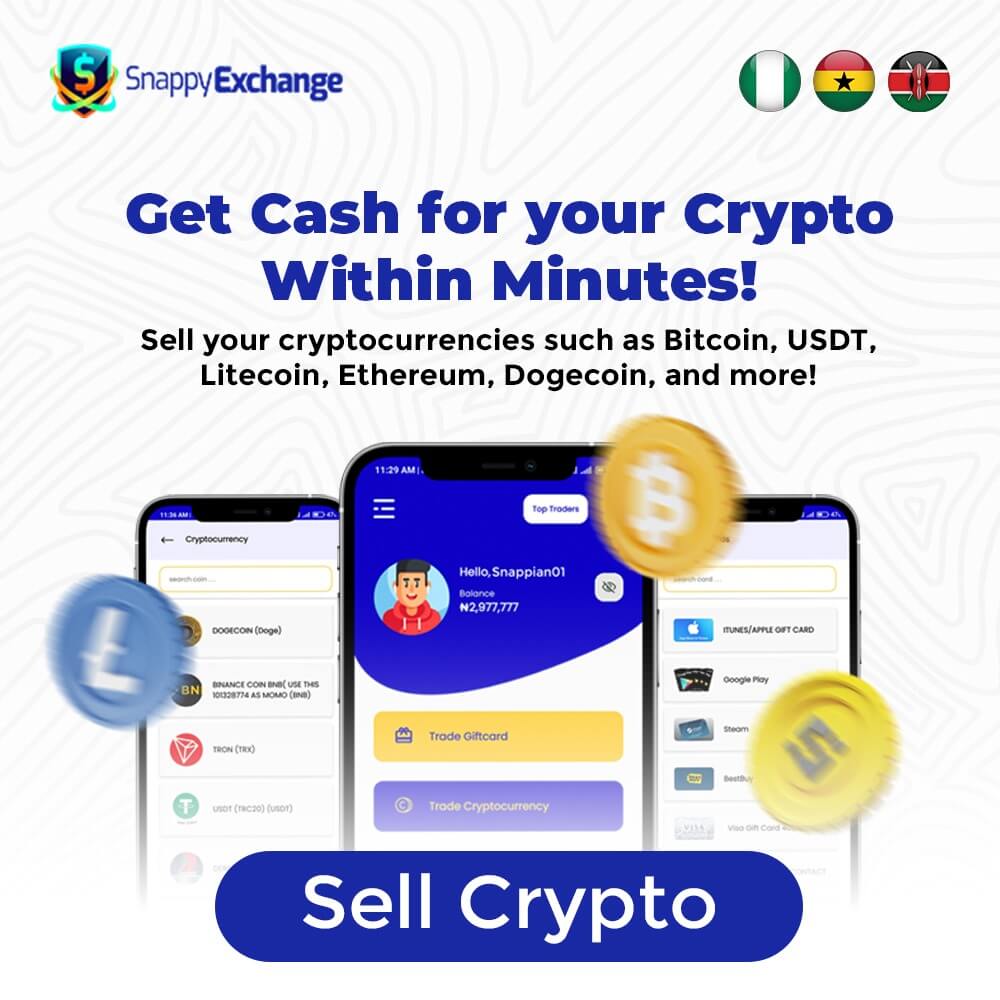Effective from the 5th of February last year, the Federal Government of Nigeria, through the Central Bank Of Nigeria (CBN), halted the transaction of cryptocurrency in banks and other financial institutions domiciled and operating in the country.
By extension, this restricted how people can buy and sell bitcoin in the country on the open.
But, to say that, ever since then, people have not been buying and selling Bitcoin is a pure gimmick. Crypto investors, shortly after the ban on bitcoin, have found other ways through which they can carry out these transactions. Hence, the situation is not hopeless.
The possible ways you can still buy Bitcoin despite the ban are through Peer to peer (P2P) facilitated wallet/exchange, Over counter (OTC) exchanges, using e-currencies, Paypal and Coinbase (particularly for Nigerians residing outside the country), or through an Ecobank Ghana account.
In the rest of this post, we will extensively discuss the intricacies behind these different ways to buy bitcoin safely in Nigeria after the prohibition by the CBN.
5 Ways You Can Buy Bitcoin in Nigeria Despite The Restriction
Through Peer to peer (P2P) exchange
One of the common ways many crypto traders are now buying bitcoin is by entrusting their assets to a P2P facilitated wallet/exchange. A popular example of this is Binance but others use Blockvila and so on.
On these P2P platforms, you will be exposed to already existing adverts of bitcoin holders who want to sell, and even those who are willing to buy like you.
When you go for buying, the seller’s coin is held in Escrow until the receipt of payment to the person’s bank account is confirmed by the person. Then, the beneficiary goes ahead to release the coins to your address.
That way, you have bought bitcoin outside the purview of the ban, and still, have the option to cash out in NGN by converting the purchased bitcoin to cash through selling on the same P2P wallet or exchange.
Over-the-counter (OTC) exchanges
Another way you can buy bitcoin is through broker exchanges. These entities are in existence essentially to exchange your bitcoin for fiat or vice versa which is the case here.
If you are going for this window, all you need to do is identify a trusted OTC crypto exchange, sign up and transfer your coins to them, then they pay for your coins directly to your bank account.
The above is for selling bitcoin, and it takes the other way around if you want to buy bitcoin through this route to avert the ban restriction and not cause problems since there’s no need to use cryptocurrency as the transaction description.
Through e-currencies
Digital currencies like Neteller, WebMoney, and the rest can be used as an alternative method to buy or sell bitcoin, especially given that the latter has been banned. The only difference between these currencies and crypto is that the former is not decentralized.
Nevertheless, this is one way you can outflank the CBN transaction ban when trading bitcoin. It involves, first, acquiring e-currencies exchanges and then using the e-currency to buy your bitcoin and receive payments.
Through an Ecobank Ghana account
if you create an Ecobank account as a non-resident, it means your account is not subject to the restriction placed on digital currency transactions in Nigeria. This allows you to connect the account to any exchange of your choice (e.g Blockvila, OKEX, Binance, etc).
Due to this, what many crypto traders began to do after the ban was to create an Ecobank account, perform transactions, then withdraw money to the Ecobank Ghana account.
By using Paypal and Coinbase
As a Nigerian crypto trader outside the country, the ban still applies to you depending on the channel through which you trade. By opening a PayPal or coin base account, you can bypass the ban after linking both accounts, and then send all your bitcoin assets to your coinbase wallet.
With this, you will be able to withdraw your assets from your coinbase account down to the already linked PayPal account.
From here, it becomes legal to transfer your PayPal funds to your naira account. If you take this process in the reverse, then you will see you can buy Bitcoin by binding your PayPal and coin base account.
So what’s the best option to buy bitcoin after the ban?
Instead of considering some of these options that seem complicated, a lot of FinTech outfits have sprung up, creating apps, platforms, and sites to trade bitcoin in Nigeria. These online solutions could be Crypto brokers, Cryptocurrency trading platforms, or Peer-to-peer (P2P) crypto exchanges.
As mentioned earlier, Crypto brokers only offer easy payment methods like bank transfers or debit card payments to users. While P2P platforms enable people to easily buy cryptocurrencies from other people by matching buyers and sellers and using an escrow system for improved security and reduced scam cases.
On the other hand, Crypto trading platforms allow traders to easily trade cryptocurrencies by allowing them easily deposit fiat money (like Naira and dollars) which is used to purchase coins that they want to trade.
So the best option to buy bitcoin in Nigeria after the ban is to identify a reliable website that allows you to trade bitcoin at the best rate. An example of the best Crypto trading platform that allows traders to easily trade cryptocurrencies even after the ban is SnappyExchange.
Some recent development has provided vouchers that customers can buy, convert to naira, and deposit into their wallets to buy crypto. But it will also require them to buy a voucher that cashes out with their bank account to withdraw.
Bitcoin transactions still booming despite the ban …
Despite the restriction placed by the CBN on the transaction of Bitcoin and other cryptocurrencies, crypto continues to thrive in Nigeria for some good reasons.
To begin with, it is necessary to admit that bitcoin has been instrumental in helping many Nigerians hedge against inflation as the naira continues to lose its value.
So, no matter the restrictions, there are obvious indications that crypto traders and investors will continue to find ways to buy bitcoin in Nigeria even though the chances of Nigeria embracing crypto as a legal tender remains slim at the moment.
An ugly directive that followed the ban was that any account involved in this kind of trade be shut down or closed. And so, it is obvious that the ban limited the operations of traditional/centralized exchanges given that it is the common channel people buy BTC in Nigeria – not anymore.
Today, you cannot buy bitcoin with Naira directly from your bank, and even when you do, your account will be flagged.
This is why every crypto trader is focusing on any of the five alternative ways to buy crypto explained earlier on.
What’s The Most Popular Way Traders buy BTC in Nigeria After The Ban?
We have seen that the three broad options left for bitcoin investors to buy the coin in Nigeria despite the ban were either through Crypto brokers, Cryptocurrency trading platforms, or Peer-to-peer (P2P) crypto exchanges.
However, the most popular window today is through the P2P platforms. Here, the buyer transfers the worth of bitcoin or any altcoin he/she wants to buy directly to the seller’s bank account.
It appears to be a common way now because it is similar to the normal inter-bank transaction. On this channel, the seller sends the crypto to the buyer’s wallet through the exchange.
Users can outflank the restriction through this method because no financial institution is needed to facilitate the transaction. It is, in fact, almost impossible for banks to know the purpose of the transfer, hence making it difficult to regulate.
Conclusion
The central bank of Nigeria (CBN), is the general financial organization that controls and supervises all financial institutions in Nigeria.
There is no doubt that there are many limitations currently present in the Nigerian money market that makes it difficult for crypto traders to easily buy bitcoin.
Apart from the outright ban on crypto accounts, issues of bank restrictions, scams, and Ponzi schemes among many others contribute to the thorns in the entire process.
However, this is not a hopeless situation because it appears that these Nigerian financial institutions are still oblivious of Bitcoin’s potential impact on the economy and those who are involved are actively looking at ways to continue buying and selling the digital token.
In the above article, we have seen different ways one can buy Bitcoin in Nigeria after the ban. And I hope you found this helpful.
What ways do you prefer to buy your bitcoin? Share in the comments.

